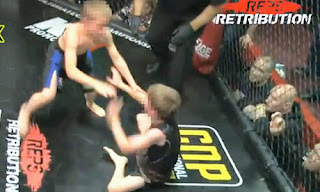I didn't really watch
Celebrity Big Brother but I was pleased to hear that Paddy Doherty had won it.
Doherty is an Irish Traveller from Salford who in the post-series programme I did watch explained that his motivation in taking part was to dispel some of the stereotypes about Travellers (he also spoke interestingly about how this was the first time he had really spoken to non-Travellers, what he called "country people").
The result of Celebrity Big Brother and the success of the Channel Four programme My Big Fat Gypsy Wedding (in which Doherty also appeared) demonstrate curiosity about and respect for the Travellers' lifestyle combined with the ongoing discrimination and bigotry directed at them.
The statistics are pretty clear that Roma and Irish Travellers are among the poorest and most socially excluded groups in terms of education, health and life expectancy and are also most likely to face both official and day to day overt discrimination in much the same way as black and Asian people did up to at least the 1970's .
Two examples sum up for me this combination of a romantic view of the Traveller lifestyle and the crude prejudice that they are subjected to.
In the middle of Wilmslow, a posh Cheshire town where half the first teams of Manchester City and United live, is a caravan once owned by
George Bramwell Evens, a Methodist minister of Roma descent who presented a BBC radio programme about the Traveller lifestyle. The local council have preserved it as a tourist attraction. If any Roma or Travellers parked their caravan in Wilmslow today, the council would go straight to court to have them moved on.
A few years back I was in Ennis in the west of Ireland. Walking into the town centre just after I arrived, I passed a derelict building on the edge of an industrial estate with some caravans parked outside, a couple of dogs running round and kids playing football. I didn't think much of it until I got back to where I was staying and switched on the TV. The main item on the local evening news bulletin was about the Travellers who had taken over a disused school in Ennis and how the Gardai were preparing to throw them out. Travellers face as much if not more discrimination in Ireland, despite them being ethnically identical to the rest of the Irish people. One of the theories as to origin of the Irish Travellers' lifestyle is that their ancestors were driven off their land by Cromwell in the 1650's, an event still remembered in word if not deed in Republican towns like Ennis.
It would be good if just a small fraction of the people who watched My Big Fat Gypsy Wedding or voted for Paddy Doherty on Celebrity Big Brother went down to
Dale Farm in Essex on 19th September to stop Tory-controlled Basildon Council evicting ninety Irish Traveller families from their homes on a disused scrapyard.
 The current ITV series in which Billy Connolly travels by motorbike across America on Route 66 is pretty formulaic stuff but the ten minutes of last night's episode I saw contained an interesting bit.
The current ITV series in which Billy Connolly travels by motorbike across America on Route 66 is pretty formulaic stuff but the ten minutes of last night's episode I saw contained an interesting bit.















